第6单元:频度副词 (Adverbs of Frequency)
- 格式:ppt
- 大小:2.92 MB
- 文档页数:37
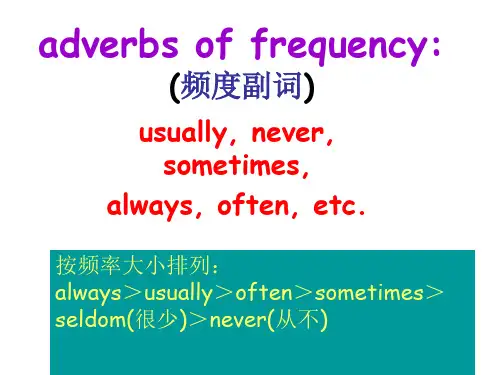
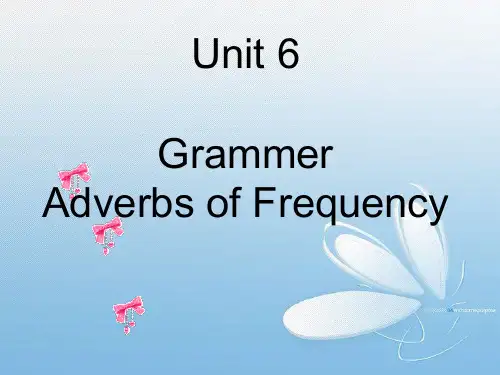
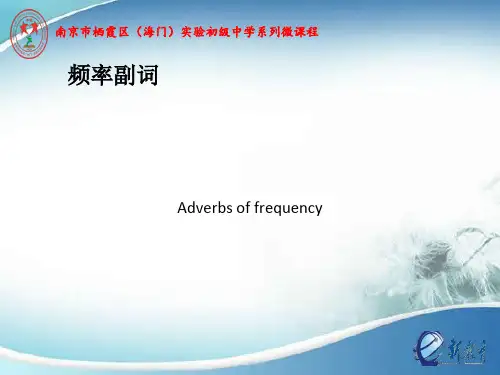
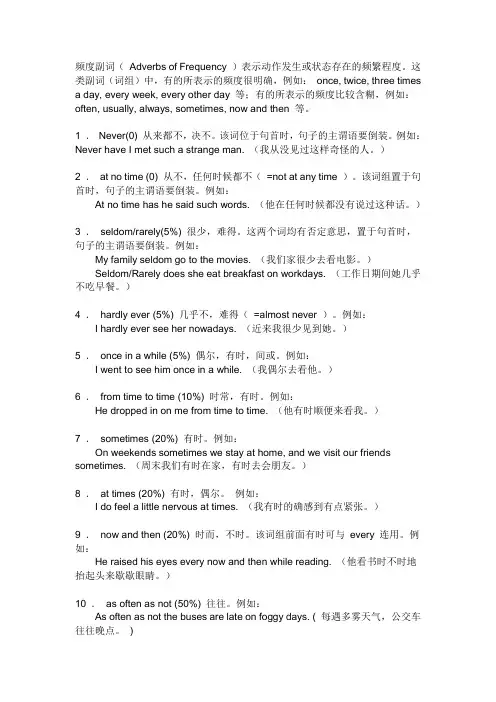
频度副词(Adverbs of Frequency )表示动作发生或状态存在的频繁程度。
这类副词(词组)中,有的所表示的频度很明确,例如:once, twice, three times a day, every week, every other day 等;有的所表示的频度比较含糊,例如:often, usually, always, sometimes, now and then 等。
1 .Never(0) 从来都不,决不。
该词位于句首时,句子的主谓语要倒装。
例如:Never have I met such a strange man. (我从没见过这样奇怪的人。
)2 .at no time (0) 从不,任何时候都不(=not at any time )。
该词组置于句首时,句子的主谓语要倒装。
例如:At no time has he said such words. (他在任何时候都没有说过这种话。
)3 .seldom/rarely(5%) 很少,难得。
这两个词均有否定意思,置于句首时,句子的主谓语要倒装。
例如:My family seldom go to the movies. (我们家很少去看电影。
)Seldom/Rarely does she eat breakfast on workdays. (工作日期间她几乎不吃早餐。
)4 .hardly ever (5%) 几乎不,难得(=almost never )。
例如:I hardly ever see her nowadays. (近来我很少见到她。
)5 .once in a while (5%) 偶尔,有时,间或。
例如:I went to see him once in a while. (我偶尔去看他。
)6 .from time to time (10%) 时常,有时。
例如:He dropped in on me from time to time. (他有时顺便来看我。


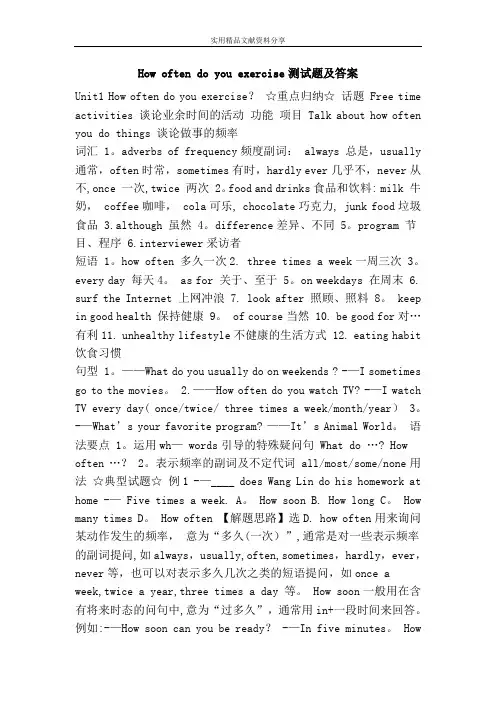
How often do you exercise测试题及答案Unit1 How often do you exercise?☆重点归纳☆ 话题 Free time activities 谈论业余时间的活动功能项目 Talk about how often you do things 谈论做事的频率词汇 1。
adverbs of frequency频度副词: always 总是,usually 通常,often时常,sometimes有时,hardly ever几乎不,never从不,once 一次,twice 两次 2。
food and drinks食品和饮料: milk 牛奶, coffee咖啡, cola可乐, chocolate巧克力, junk food垃圾食品 3.although 虽然 4。
difference差异、不同 5。
program 节目、程序 6.interviewer采访者短语 1。
how often 多久一次2. three times a week一周三次 3。
every day 每天4。
as for 关于、至于 5。
on weekdays 在周末 6. surf the Internet 上网冲浪 7. look after 照顾、照料 8。
keep in good health 保持健康 9。
of course当然 10. be good for对…有利11. unhealthy lifestyle不健康的生活方式 12. eating habit 饮食习惯句型 1。
——What do you usually do on weekends ? -—I sometimes go to the movies。
2.——How often do you watch TV? -—I watch TV every day( once/twice/ three times a week/month/year) 3。

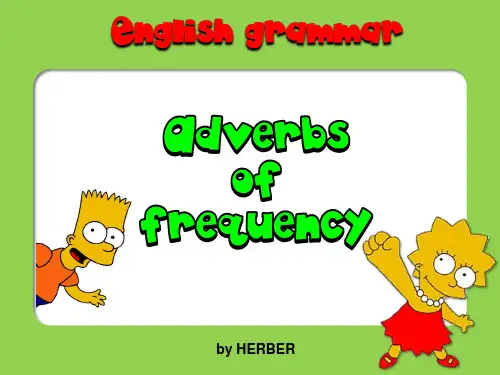
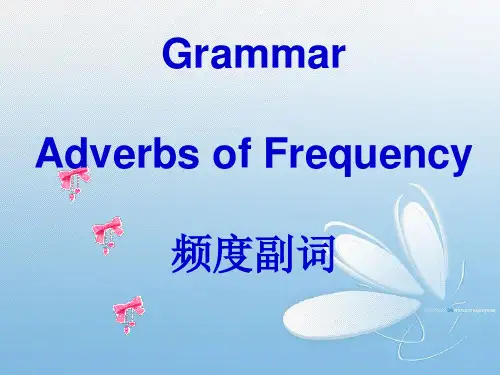

频度副词(Adverbs of Frequency)always, usually, sometimes, occasionally, seldom, never, generally, frequently, hardly, ever, never, rarely, constantly, continually, scarcely 等词在英文中被称为“频度副词”,是用来表示动作频率的,但程度上有别。
一般说来可按频率大小排列如下:always>usually>often>sometimes>seldom(很少)>never(决不)频度副词有的表示动作的经常性或事物的经常状态,有的表示动作的不规则的反复。
频度副词在句子中的位置常常因谓语动词的不同而变化。
其基本规律如下:1.在实义动词之前。
例如:I hardly ever heard her singing.我几乎从未听她唱过歌。
2.在be动词之后。
如:She is sometimes very busy. 她有时很忙。
3. 复合谓语时,在第一个助动词或情态动词之后。
如:This job will never be finished.这项工作永远也完不成了。
I do not often have headache.我不常头痛。
但是,当这些情态动词、助动词需要强调时,频度副词要放在它们之前,朗读时要重读情态动词及助动词。
例如:They always can find time for English.他们总能找到时间学习英语。
(can 应读强式)-Why don't you stop smoking?-你为什么不戒烟?-But I never have smoked.-我从来也不吸烟。
(have要读强式)4. 如在补充陈述或答话中单独使用助动词,频度副词常放在这类动词之前:—Can you park your car near the shops?—Yes,I usually can.—你可以在商店附近停车吗?—是的,通常可以。
频度副词(Adverbs of Frequency)一、频度副词是用来回答how often(经常与否,多久一次)这样问题的副词。
常用的频度副词有:always, almost always, usually, often, sometimes, hardly ever (seldom), never等。
这些频度副词在频度差异上可以这样表示:always (100%) > almost always>usually > often > sometimes > hardly ever (0%)always意为“总是”, 表示动作的重复或状态的延续。
usually意为“通常”, 表示很少有例外。
often意为“经常”, 表示动作的重复, 但不如usually那么频繁, 中间有间断。
sometimes意为“有时”, 表示动作偶尔发生。
hardly意为“几乎不”, 常和ever连用表示强调。
never意为“从未”。
二、频度副词通常放在动词前面,若句子里有情态动词、助动词或系动词be,则放在这类动词(第一个)的后面。
三、由wh- 和how 引导的特殊疑问句以及对应的答语。
如:What do/does +主语+频度副词+V.原+…?How often + 助动词do /does (或did) + 主语+ do sth.?What do you usually do on weekends?你通常周末做什么?I usually listen to music.我通常听音乐。
How often do you go to the factory?你多久去一次工厂?I go to the factory twice a week.我两周去一次。
How often do you exercise? 你(你们)多久锻炼一次身体?四、总结:how often“多久一次”询问动作的频率。
答语:(1)every+名词单数everymorning/afternoon/evening/day/Sunday/weekend/week/ month/term/year/…(2)次数+一段时间once a day / twice a week / once or twice a year / two or three times(3)频度副词always---usually---often=all the time=at times---sometimes---hardly ever---never =seldom。